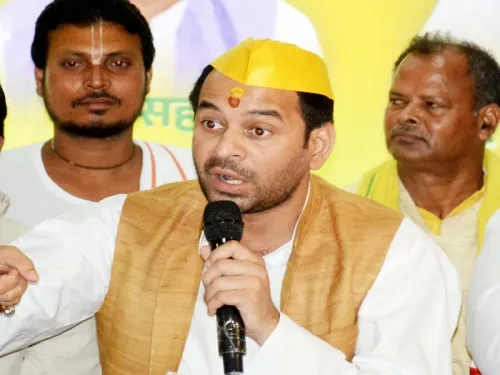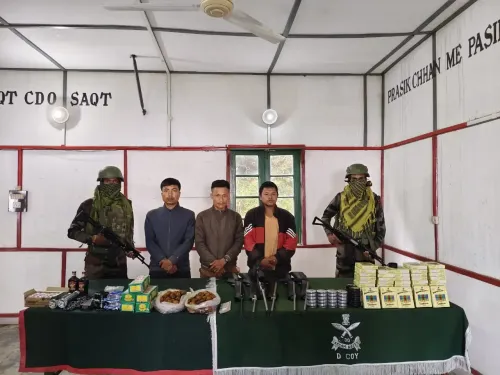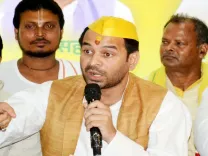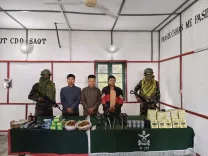Why Did MP HC Ban the Burning of Effigies of Accused Sonam Raghuvanshi?
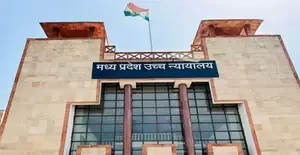
Synopsis
Key Takeaways
- Madhya Pradesh High Court prohibits effigy burning of accused women.
- Sonam Raghuvanshi is implicated in her husband's murder case.
- The court emphasizes the need for democratic values in legal proceedings.
- Effigies prepared by local organization faced legal challenge.
- Case reflects broader societal issues regarding justice and public perception.
Indore, Sep 27 (NationPress) The Madhya Pradesh High Court has issued a directive to prohibit the burning of effigies of the accused Sonam Raghuvanshi and other women from different states during Dussehra celebrations in Indore.
A local social group had planned to ignite effigies representing women, including Sonam Raghuvanshi, who garnered national attention for allegedly orchestrating the murder of her husband while on their honeymoon in Meghalaya.
This ruling followed a legal petition by Sonam Raghuvanshi's mother, Sangeeta Raghuvanshi, who argued that her daughter has wrongfully been implicated in the case, which is currently under judicial review in Shillong, Meghalaya.
The court remarked that such actions are inconsistent with democratic values, thus banning the organization from carrying out the effigy burning of women facing criminal allegations nationwide.
Sonam Raghuvanshi's husband, Raja Raghuvanshi, was reported missing on May 23 during their honeymoon in Meghalaya, with his disfigured remains discovered on June 2 in a ravine near a waterfall in the Sohra region of the East Khasi Hills.
The couple's disappearance prompted a widespread search across the country.
Ultimately, Raja's body was recovered, while Sonam surrendered to authorities in Uttar Pradesh as Meghalaya police apprehended additional suspects.
Alongside Sonam Raghuvanshi, the police arrested her purported boyfriend Raj Kushwaha and three accomplices: Vishal Singh Chauhan, Akash Rajput, and Anand Kurmi.
In total, Sonam and several others, including her alleged boyfriend, are facing charges in this case.
Meanwhile, a 11-headed effigy was being prepared for the 'Surpanakha dahan' by the local group 'Paurush' (People Against Unequal Rules Used to Shelter Harassment).
In addition to Sonam Raghuvanshi, the organization intended to burn effigies of 10 other women implicated, either directly or indirectly, in the deaths of their spouses.
Among these women, five hail from Uttar Pradesh, while two are from Madhya Pradesh.


